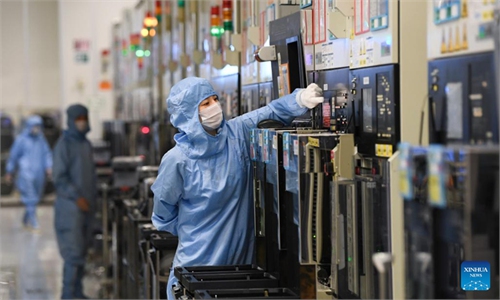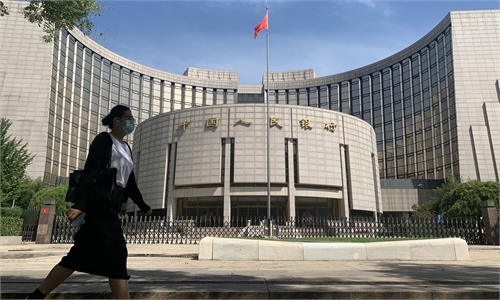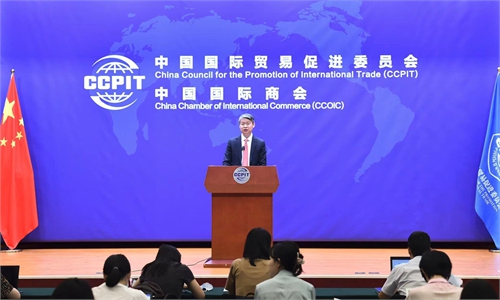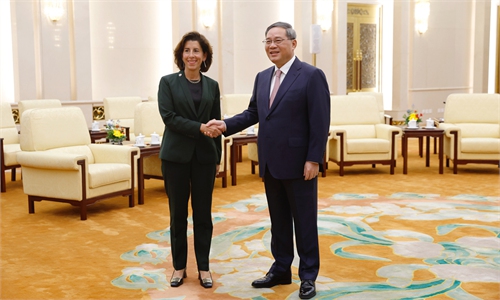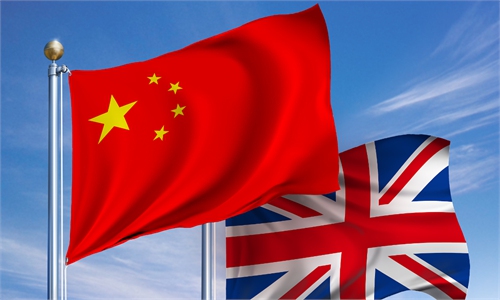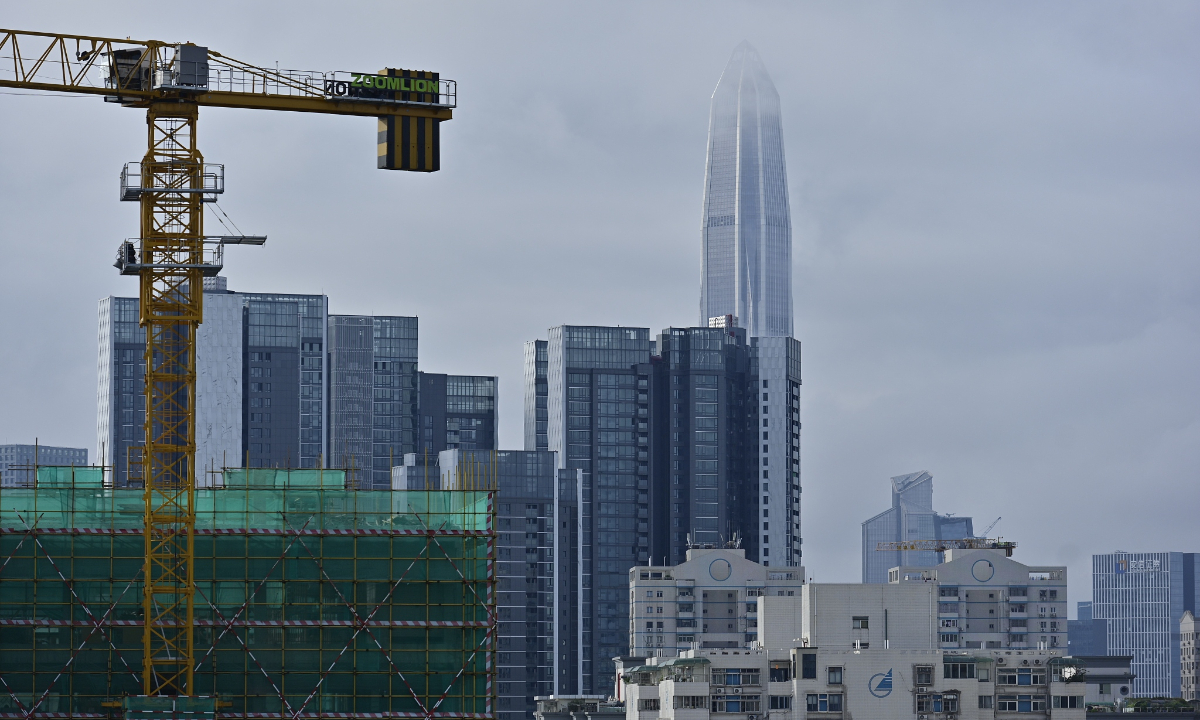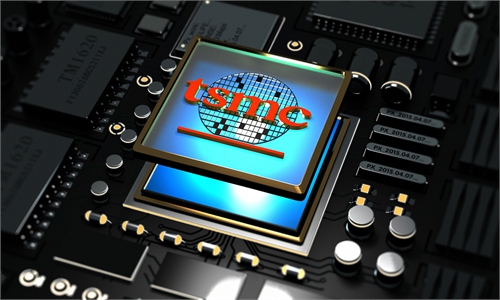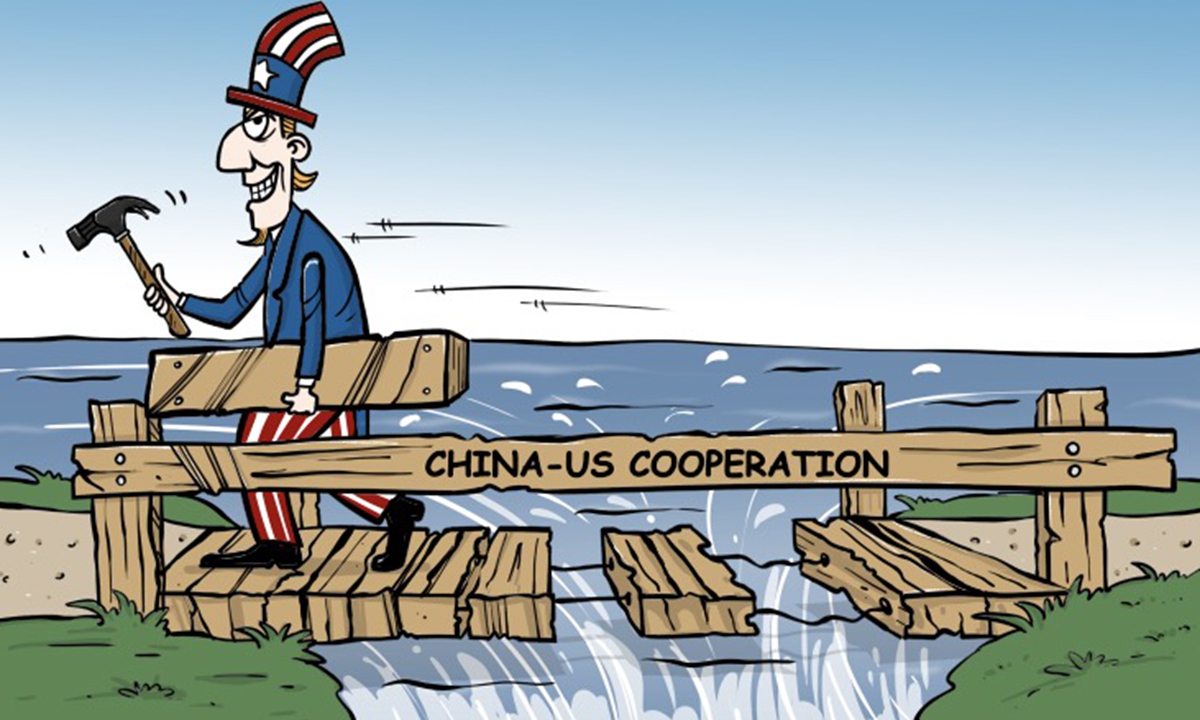FILE PHOTO: A smartphone with a displayed TSMC (Taiwan Semiconductor Manufacturing Company) logo is placed on a computer motherboard in this illustration taken March 6, 2023. REUTERS/Dado Ruvic/Illustration/File Photo
Coupled with current plans, TSMC will have factories in five countries
spread over three continents, rivalling the sprawl of rivals Intel Corp
and Samsung Electronics Co.
A LITTLE over three years ago, Taiwan Semiconductor Manufacturing Co (TSMC) was among the world’s most geographically concentrated technology giants with almost the entirety of its capacity within a 300-mile radius.
Now, it is on the verge of becoming one of the most globally diversified chipmakers. This wasn’t the plan.
A new facility near Dresden, Germany, is set to begin operations in 2027, the Hsinchu-based company said yesterday.
Coupled with current plans, TSMC will have factories in five countries spread over three continents, rivalling the sprawl of rivals Intel Corp and Samsung Electronics Co.
These overseas plants add to the significant operations it has in Taiwan and the two existing sites in China. (For more than 25 years it has also owned a fab near Portland, which though profitable is small and not seen as a company success story.)
Having all its manufacturing close to home has always been an advantage for the made-to-order chip foundry.
The tight relationship between research and development, and factory operations, where engineers can easily shuffle between production lines, helped TSMC become a fast-moving supplier in a high-stakes industry. Dotting the world with fabs risked diluting this advantage.
But then TSMC’s true global expansion kicked off in May 2020 with the announcement of a new facility in Arizona, a project which was enhanced two years later to include a second plant at the site, taking total investment in the Southwestern state to US$40bil.
A venture with Japan’s Sony Group Corp, unveiled in 2021, took TSMC in a new direction. Instead of owning a factory outright, Sony Semiconductor Solutions Corp will take a 20% stake in a factory being built in Kumamoto.
Automotive components supplier Denso Corp later signed on to take a stake of over 10%. That plant is closer to Shanghai than Tokyo.
Dresden is a continuation down that path of working with clients to jointly own facilities, largely to supply the growing demand for components used in automobiles.
TSMC will invest up to €3.5bil for a 70% share of newly formed European Semiconductor Manufacturing Co.
Robert Bosch GmbH, Infineon Technologies AG and NXP Semiconductors NV each take 10%, and total capital expenditure is expected to be around US$11bil, with the money coming from equity, debt and German and European Union funding.
Since its founding by Morris Chang more than three decades ago, TSMC eschewed equity partnerships in favour of maintaining full control over its operations, and thus its destiny.
But the global winds have changed, and its new leaders, chairman Mark Liu and chief executive officer CC Wei, have had little choice but to adapt.
TSMC’s balance sheet is solid, its cash flow is stable, and its credit rating is high. It doesn’t need clients nor governments to hand it money in order to pay for these new facilities.
What it does need, though, is buy-in. These remote factories at locations many time zones from home require firm orders as well as a solid commitment from third parties motivated to ensure the company’s success.
Having the likes of Sony, Infineon and NXP on the ownership list ensures they have skin in the game, while government involvement should help secure political and economic support.
Suddenly, TSMC goes from being an under-the-radar Taiwanese supplier solely focused on a coterie of semiconductor clients, to a global entity with multiple stakeholders across numerous national and local jurisdictions. It’s already proving to be a difficult adjustment.
Liu last month announced the delay of its Arizona opening by about a year. Time spent navigating local regulations and a struggle for talent, including among vendors, means TSMC won’t kick off operations there until 2025.
Last week, the company signed an agreement with Arizona governor Katie Hobbs to follow a worker safety programme that’s stricter than federal rules, a sign that TSMC needs to keep adjusting to a changing regulatory landscape.
Continued concerns about pay and conditions among local workers means a labour dispute could flare up at anytime, a situation uncommon at home in Taiwan.
Also of surprise is the escalating scale of divergence between costs in the United States and Taiwan, which will likely force the chipmaker to charge clients like Apple Inc and Nvidia Corp significantly more for products made in Arizona.
The Japan plan appears to remain on track for production late next year, with a high chance a second fab will be added to the project. Yet despite the US$60bil to be spent in total by all parties, the new facilities will account for no more than 10% of global capacity.
And not all fabs are created equal; the best stuff will remain in Taiwan for the foreseeable future, with Dresden and Kumamoto both deploying much older production technology – which is fine because automotive chips don’t need anything more modern.
Still, these foreign partners have no reason to complain. Clients are getting a stake in, and access to, precisely the factories and know-how they need.
Governments, meanwhile, can tell their constituents that they’ve been successful in luring the world’s most important technology company to their shores.
TSMC is also a winner. Just five years ago, the company warned investors that the European Commission was looking into concerns about “alleged anti-competitive practices” in relation to semiconductor sales.
The US Fair Trade Commission was also showing interest, it was reported at the time. Nothing came of these probes, but it would be particularly awkward for regulators in either jurisdiction to now accuse TSMC of being a predatory tech giant when its management has bent over backwards (and spent billions of dollars) to set up shop on their turf.
These overseas plants also dampen the constant drumbeat among rivals that TSMC is overly concentrated in one place, and that governments and chip customers need to look elsewhere.
Now, the company is giving them that “elsewhere.” Half the world gets a piece of TSMC, and in return all the chipmaker had to do was lean into globalisation. — Bloomberg
Tim Culpan is a Bloomberg Opinion columnist covering technology in Asia. The views expressed here are the writer’s own.
Source link
RR
Washington has firmly taken grip over the Democratic Progress Party (DPP) authorities' mind when it comes to “relying on the
US to seek secession,” while at the same time hollowing out Taiwan region's economy, and making the island a complete ...









